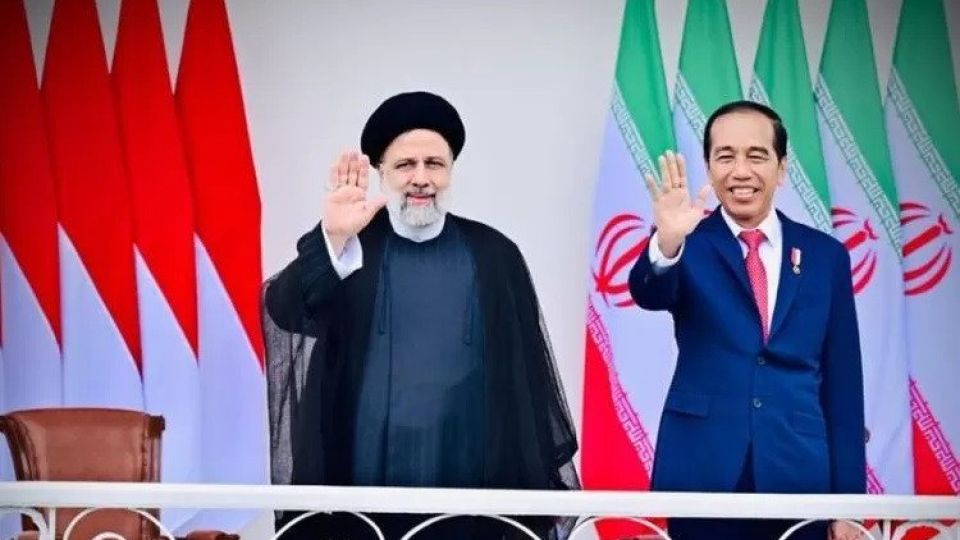May 24, 2023
JAKARTA – For some observers of the Middle East, it may be tempting to paint Tuesday’s Iranian-Indonesian summit in Bogor, West Java, in a fearful light, as Tehran’s diplomatic rise gathers pace amid a shift in the region’s status quo.
But sometimes, nations are prepared to be pragmatic, and may even be justified in doing so, if the benefits of cooperation outweigh the potential risks.
For Indonesia, the visit of Iranian President Ebrahim Raisi is the result of a multi-year effort to deepen cooperation with a so-called “nontraditional” ally.
There is obviously much ground to cover for the two partners to convert their US$250 million in trade into the lofty $20 billion target, but what is important is that Jakarta is willing to invest in the relationship.
Both Iran and Indonesia have immense potential for growth and development, and by fostering stronger economic ties, the two nations can benefit from increased trade and investment opportunities. Iran’s rich energy resources and Indonesia’s strategic location in Southeast Asia provide a solid foundation for collaboration in sectors such as energy, infrastructure, agriculture and tourism.
In a post-meeting press statement, President Joko “Jokowi” Widodo spoke of joint pilot projects in telemedicine and telerobotic surgery, as well as cooperation in biotechnology and nanotechnology for the energy sector, among other initiatives.
Transfers of technology, co-production initiatives and research cooperation are all in high demand in Indonesia as it seeks to escape the middle-income trap on its way to becoming an advanced economy.
For Iran, the bilateral initiatives are indeed a welcome respite, allowing the Islamic republic to offset the economic impact of Western and international sanctions, with economic growth in the Middle East headed for a slowdown this year, according to the International Monetary Fund.
The deepening of its ties with the largest Muslim-majority country should be seen in a favorable light, continuing on the Chinese-brokered detente with Saudi Arabia that United States President Joe Biden noted “was a good thing”.
With the end of conflict in Yemen now a possibility, and amid similar developments in Syria and Bahrain, Tehran’s efforts in recent months are a welcome change of tack in a region with deep divisions that many believed would be impossible to heal.
Pragmatism could well be the central driver of these changes. If for years a major power like the US was unable to nurture peace in the Middle East and the Persian Gulf, then perhaps it was time for a different approach, one where cooperation was underlined and a different, impartial broker appointed.
This is not to discount any of the wrongs that Tehran might have done to deserve such heavy sanctions. The brutal crackdown on protests over the death of Mahsa Amini should not go unanswered, and it is our hope that Jakarta can help persuade Tehran to do better in the future.
In his remarks to the press in Bogor, Raisi mentioned that women and girls in Iran had “an effective and successful presence in various fields and have brought pride to our country”. While this was said in the context of the common stance Iran and Indonesia have on the oppression of women by the Afghan Taliban, the Iranian women who rallied behind Amini’s death now have more impetus to remind its government to practice what it preaches.
By working together, Indonesia and Iran can amplify their voices and promote a more balanced and inclusive global agenda that reflects the interests and aspirations of developing nations and their different population groups.
Enhanced cooperation, cultural exchange and joint efforts in countering regional challenges can pave the way for a more prosperous and secure future for both nations.


